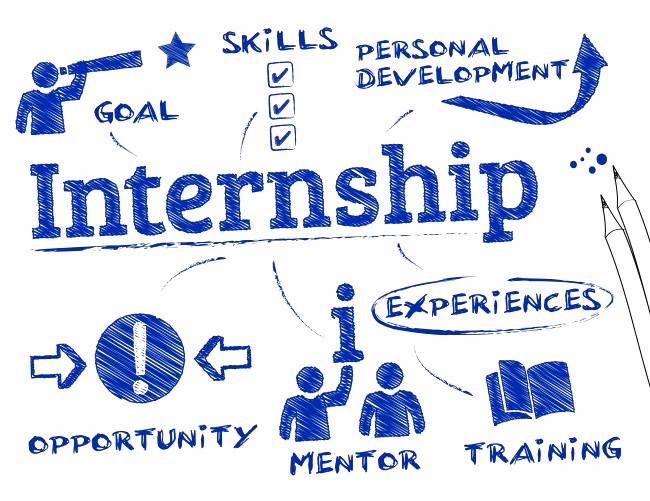Congratulations!! After following the top secrets of past fellowship winners for applying for fellowships, you now have an invitation for an interview. Now, the challenge is how to prepare for your fellowship interview?
Don’t worry! We always got you covered.
In this article, you will learn strategic tips that will help you to properly prepare for any fellowship interview.
Your application for the fellowship already stands out, so you need to make sure that your interview also stands out.
Although, not all fellowships organise interviews for their candidates, you don’t want to be caught unaware.
Therefore, you must make sure that you make a little preparation to avoid surprises.
Your interview is a chance to elaborate upon your application in order to give the committee a better sense of who you are and why they should be enthusiastic about your plans.
It is also a chance to have a great conversation about your ideas and to receive useful feedback from individuals who have a wide range of experiences and expertise.
Therefore, be ready to share your enthusiasm for your proposal and to learn from the conversation.
What to expect in a fellowship interview
If you have attended an interview in the past, then a fellowship interview is not so much different from that.
Below are some of the things to expect in your fellowship interview;
1. You will meet with the fellowship committee
This fellowship committee is a small group of people usually about two or more individuals who have read your application.
While the committee may be quite large sometimes, you must not let this intimidate you.
It is not unusual for some interviews to be a conversation between the applicant and five (or more) committee members.
But, with more number of committee members means a greater number of people who can provide you with valuable feedback and insight during the course of your discussion.
2. You will meet with experts in your field
Some of the people who will form the fellowship committee will most likely be experts in your field.
This is why they will be in a better position to help your focus your ideas in order to create some phenomenal.
If you are a former student of the school, you might even recognize some of the faces of the interviewers.
Otherwise, they might all be new faces.
In either case, all committee members present will definitely introduce themselves.
Remember that each committee member volunteered to take part in this process and is glad to speak with students in this context.
3. There will be a short conversation.
The fellowship interview does not take all day, that’s why you need to properly prepare for it.
In most cases, the interview only lasts about 15-20 minutes.
Many applicants do feel that their interview was over before it has even begun.
Because of this very short time for the interview, you must make sure you are hitting the nail on the head.
What this means is that you should only talk about the most important points during your interview.
Also, be sure to keep your answers to questions short and sweet.
What to prepare for your fellowship interview
1. A short summary of your proposed plans.
Many committees begin the interview by asking the applicant to summarize briefly what they are hoping to do with the support of a fellowship.
Since time is short, keep this well under two minutes.
Remember that the interview time is short and you would want to make sure that the interviewers get an understanding of your proposal.
Later in the course of the interview, you can (and should) get into more detail about your plans.
Remember that committee members will come from a range of academic fields, so make sure your summary is appropriate for educated non-specialists.
2. Updates about anything that has developed or changed since you submitted your application.
If anything has changed from the time you submitted your application for the fellowship until the time you are called up for the interview, then you must let the interviewers know.
These updates may include getting a greater number of contacts that will be helpful for your research.
It could also be that you have you come up with a final version of the interview framework for your research.
Whatever the case may be, you have to update the fellowship interview committee.
3. An understanding of how your plans fit into your ‘big picture.’
The committee will want to know what experiences you’ve had in the past that qualify you for or sparked your interest in your proposed activity.
They will also be interested in learning more about how you hope to build upon your proposed plans after you return to campus, during the following summer, or in the course of your life after school.
This where your past degrees come as a basis on which you plan to build on and specialize.
For instance, if you want to do paediatric anesthesiology, then a good basis will be a degree in anesthesiology.
The fellowship will help you to achieve the specialization that involves anaesthetizing children for surgery.
How to prepare for a fellowship interview
Here are comprehensive details of how to prepare for a fellowship interview as explained by experts at ProFellow.
1. Do your homework – read, research, ask questions.
This is the first thing you must do before appearing for an interview.
Do your homework – read, research and ask intelligent questions based on your research.
This might seem like common sense, but – read the fellowship website again.
Read up on what former fellows are doing now, on the mission and vision of the organization, on the history of the program.
Find out who the “notable” fellowship alumni are and what they are doing now.
Doing your homework on the program and former participants helps you be prepared to answer any questions about why you chose this particular fellowship.
If you’re not sure where to start your research, try the fellowship website – read the “About Us/Who We Are,” “Vision,” and “History” sections.
Make sure to also read the “Fellowship Experience” and “Frequently Asked Questions (FAQ)” sections as well.
You might also try a Google search of the fellowship name followed by a phrase like “press release,” just to get a sampling of the most recent news shared by the organization.
If you know the city or state where the fellowship would take place, spend a little time reading up on recent events in that area.
And of course, if you can, consider reaching out to fellowship alumni to ask for any advice they might have about preparing for the interview.
2. Re-read your application
After being selected for an interview, it can be easy to forget all about the application package you worked so hard on and submitted months ago, but definitely re-read what you wrote before your interview.
Your interviewer(s) will have read your application shortly before the interview, and everything you wrote will be fair game.
As it will likely have been several months since you’ve written the essays, your career goals or volunteer involvements may be different by the time you get to the interview; make sure you can talk about what you wrote as well as address any changes that have taken place.
Be sure you can answer any questions the interviewers might have about prior research related to your application or about current environmental or political events mentioned in your essays.
It also can’t hurt to remember who wrote your letters of recommendation and think about your relationships and experiences with each of those individuals as well, in case a question comes up.
3. Practice answering questions
Practice – but don’t over-rehearse – your answers to the obvious questions, like:
- Can you tell me about yourself?
- Where do you see yourself in five years’ time?
- What’s your greatest weakness?
- What book or historical figure has influenced your life most?
- Can you tell us about a time that you had to work with a team and/or resolve conflict?
- Why do you want to be part of this fellowship?
- How will this fellowship contribute to your career goals?
You want to be able to show that you’ve thought about the answers to these questions, but you also don’t want to regurgitate a scripted answer that you’ve repeated fifty times verbatim.
Take advantage of mock interview resources available through your university, if applicable, or even ask your friends or your mom to help you practice.
Ask them to give you feedback on your answers, as well as your body posture and whether you’re saying “umm” or playing with your hair too much.
That being said, do not be afraid to take a moment to think in an interview, or even answer with an “I don’t know” if you really don’t know the answer to a question.
Sure, the interviewers want to see that you can think on your feet, but it is surely worse to feign knowledge about something you aren’t familiar with.
Depending on the question, you may also respond by saying something like: “What a great question – I’m not sure I have an answer to that right now, but that’s so interesting.
I’ll have to think about it,” or by referencing something you’ve read recently that was related to that question, e.g., “Great question – I was actually just thinking about this while reading [insert book and author].”
4. Prepare your own list of questions
It is always, always good to ask questions when given an opportunity in an interview.
Asking thoughtful questions shows the interviewers that you spent time preparing for the interview and thinking about the fellowship.
However, you don’t just want to ask any odd question.
For instance, you don’t want to ask questions that you could easily find the answers to (i.e., online during your research – see Tip #1).
Try to come up with careful, insightful questions while doing your research on the fellowship or organization.
You might ask questions like:
- What, in your opinion, makes for a successful [insert fellowship name] fellow?
- Is there an aspect of the fellowship experience that fellows tend to find most challenging?
- Can you tell me more about the day-to-day experience of the fellowship?
- Can you tell me more about the culture of the fellowship?
- Will fellows have opportunities to interact with fellowship alumni?
- Is there anything else I can answer for you?
- Lastly, it’s safe to ask about the next steps of the selection process after the interview.
5. Be yourself
As cliché as this might sound, being yourself in an interview is key to making your interviewers like you.
Of course, you’ll be a little nervous, and you’ll be on your toes, but still try to show your personality while answering questions.
Show your sense of humour, make eye contact as you do with your friends, all of that good stuff.
Interviewers want to see that, in addition to being impressive on paper, you are personable and pleasant.
If you’re feeling nervous in the days leading up to the interview, ProFellow also has an interesting article on Managing Fellowship Interview Anxiety (and Nailing the Interview).
Although it is impossible to predict exactly what you will be asked and how you should respond in any given interview, these tips for preparation should go a long way in making you feel more comfortable about your big day.
And remember: if you made it to the interview stage, you’re a finalist!
In other words, the interview panel is already impressed with you – now they just want to meet you.
Conclusion
Applying for fellowships is highly competitive and being shortlisted for an interview is an opportunity you don’t want to blow off.
Make sure that you prepare very well for the fellowship interview so that you don’t sound differently from your application.
Do your homework, re-read your application, practice answering questions, prepare your own list of questions and be yourself.
If you find this article helpful, please share with someone.
Cheers.





1 comment